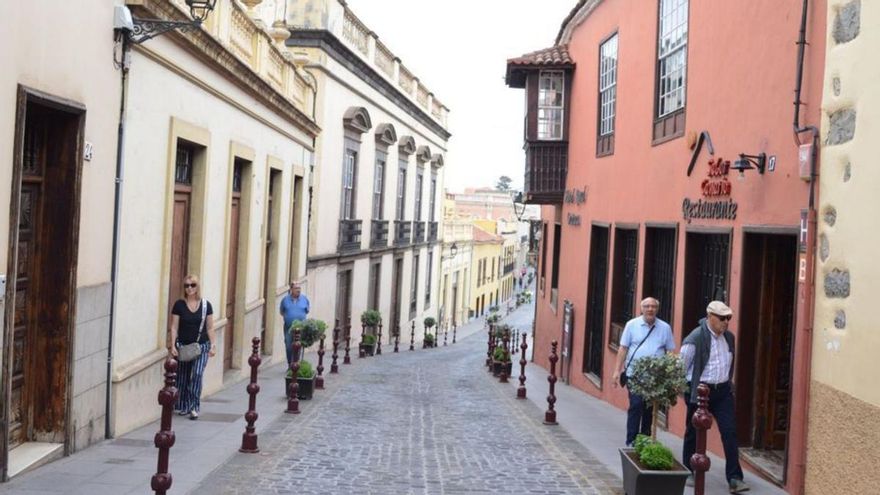
The Commercial Association of the Historic Centre of La Orotava, Zona San Francisco, has formalised its incorporation into the Spanish Confederation of Historic Centres (Cocahi), an entity that groups the main historic commercial areas of Spain. For this reason, it fully enters the work led by the national collective in defence of the declaration of the International Day of Historic Centres.
The Villa Association joined on 5th May the celebration of the ‘Day of Old Towns and Historical Areas of Spain-The Mother of All Cities’, promoted by Cocahi. The celebration «gains special importance» following the approval in the Senate, with the support of all parliamentary groups, of the motion to urge the central Government «to request the UN» for the said International Day of Historic Centres. With the slogan ‘We are the mother of all cities’, they embark on the work plan designed to achieve the goal.
The adhesion of the traders of La Orotava’s historic centre to the national Confederation «reinforces the commitment of local commerce to preserve, energise and revitalise traditional urban spaces, favouring economic activity and the conservation of cultural heritage». It represents recognition «of their fundamental role as a driving force of life and activity in the historic centre of the city». It will also allow traders to benefit from initiatives, promotion campaigns, training, and interest defence actions that Cocahi promotes at the national level.
The association’s management highlights that this step «offers new opportunities to strengthen the commercial fabric, collaborate in a network with other historic areas of Spain and enhance the uniqueness and richness of our environment».
Promoting a change in urban paradigm that must adopt sustainable and integrated urban and territorial development approaches, focussed on people through the application of integrated policies, comprises the base and objective of the Confederation, which among its purposes includes having local governments involved in the integrated development of old, ancient, and historic centres and monumental areas through «synergies among the different ordinances governing actions in these spaces».
In terms of development, they demand public-private collaboration to seize opportunities, urbanistic, economic, social, and cultural that drive and modernise these urban spaces, as well as to address the preservation of their architectural, cultural, commercial and leisure uniqueness in these environments.
Another challenge emphasised by the business collective is the need to achieve city areas so notable with a high residential load for the use and enjoyment of the citizens themselves. That is, to defend, revitalise, and promote these emblematic spaces, authentic economic, social, and cultural engines.
















